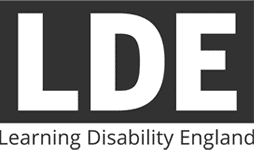Professor Rosie Harding – Changing Our Lives Trustee
Disabled people have the right to make decisions about their lives, to choose where they live, and who they live with. They have the right to live independently and to be included in the community. These are not ‘nice to have’ ideals; they are not aspirational goals. These are concrete, substantive human rights, protected by the UN Convention on the Rights of Persons with Disabilities (CRPD).*
Beth’s story, told in her ‘Hospital to Home’ book, is profoundly affecting. As a young woman, struggling to cope with the world around her, she should have been given the care, support and assistance she needed to live well and be included in the community. Instead, Beth was locked up, shut away, and cut off from everything that allowed her to be herself. She lived in seclusion for three years, totally isolated. Stripped of her dignity; she was contained and ‘managed’, alone in a hospital. Her right to an ordinary life was ignored. Her right to choose where to live and who with was withheld, replaced with locked doors, and triggering sensations. Nobody should be subjected to what Beth went through.
It’s easy to think of Beth’s experiences as an aberration, an isolated incident, an outlier. But there are thousands of other people with learning disabilities or autism still living their lives in hospitals, or dealing with the long term effects of long stays in seclusion. We don’t always get to hear their stories. When institutional abuse scandals (like Winterbourne View, Whorlton Hall or others) come up, often a few individual staff are blamed, some are prosecuted, and the legal and political contexts that allow this abuse to take place are left unchanged. The systemic violence that comes from segregating disabled people from society goes unchallenged.
There is, unfortunately, a long history of the institutionalisation of disabled people, but this is a story that can be and is being changed and challenged. Of course, there are times when people do need a place of safety, a place where they can rest, reset and rebuild their lives, with appropriate therapies and treatments to help through periods of distress and mental ill health. But hospitals are not homes, and nobody should be forced to live in a hospital, or written off, because they have a learning disability or autism. The CRPD, and the interpretation of it by the Committee on the Rights of Persons with Disabilities helps us to remember that where disabled people live, how they live and who with are human rights issues. The CRPD also gives us the tools we need to change how disabled people’s lives and experiences are represented in society and in the media.
There has been a lot of talk, from politicians about ‘fixing’ social care in recent months. Stories like Beth’s don’t get told as part of that coverage, because in the imagination of policy makers, the media and the general public, social care is about care and support for frail older people, and people living with dementia. But just under half of England’s social care expenditure is on working age adults. ‘Fixing’ social care doesn’t just mean spending more money on it, or changing who pays for what. It means making sure that there are high quality services and support systems available that can help people like Beth to live the lives they want to live, in the ways they want to live them, surrounded by the people they want to live with and near.
While politicians are paying attention to social care, we need to make sure that they keep the human rights of people with learning disabilities and autism, people like Beth, at the forefront of their minds. We need to remind the politicians that disabled people have the right to live ordinary lives, in their own homes, with the support they need, and with the people they choose. For me, that is what social care is all about: supporting everyone to live their ordinary life. Remember: human rights don’t only apply when respecting them is easy to achieve. They are even more important when it is difficult. Rights are at their most important and they’re most powerful when they force governments to do more, to do better and to the right thing. So next time you hear about social care, remember Beth’s story, remember the Article 19 CRPD right to live independently.
* The UK ratified the CRPD in 2009. This means that we agreed to be bound by the provisions of that Convention over 12 years ago. Article 19 of the CRPD covers the right to live independently and be included in the community.





